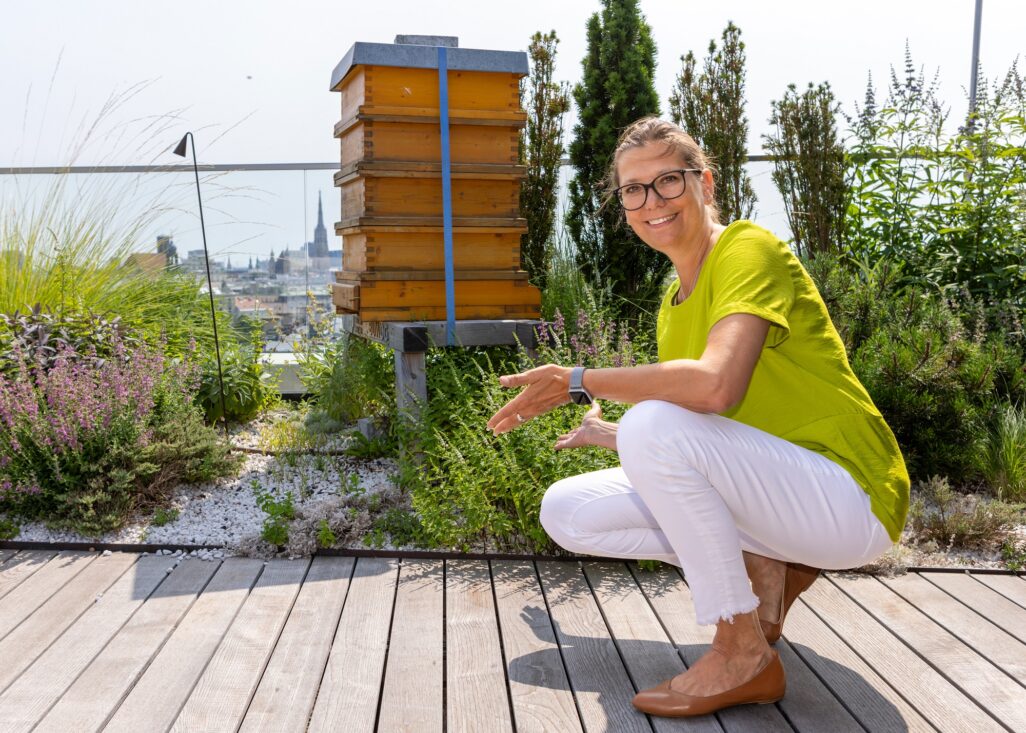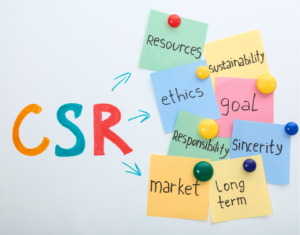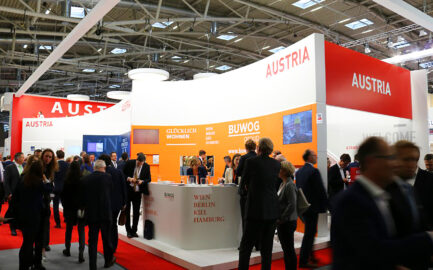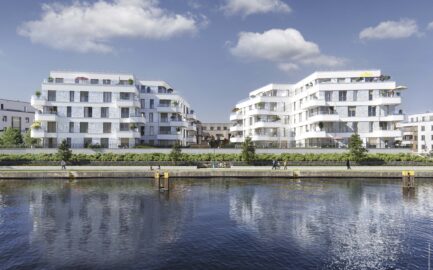In our series “BUWOG up close and personal”, we introduce people who are working on current BUWOG projects and on issues that pertain to the future. They are all united by the aim of bringing BUWOG’s slogan of “happy living” to life.
Sustainability and climate protection are a central corporate objective for BUWOG and a self-evident part of our corporate culture. We also make continuous efforts to develop and improve in this area. In keeping with this, we asked Nathalie Picha for an interview this time. She is responsible for energy management, sustainability and CSR issues at BUWOG.
Ms Picha, what is your role at BUWOG?
As a certified energy management officer and TÜV®-certified CSR and sustainability manager, I am responsible for the certified energy management system in accordance with ISO 50001, the klimaaktiv pact 2030 and for all sustainability-related issues at BUWOG.
The certified energy management system (EnMS) in accordance with ISO 50001 is a voluntary tool with which energy performance is systematically monitored and continuously improved. This tool enables us to reduce our energy consumption and our energy costs, thereby achieving greater energy efficiency. Using the energy management system is therefore a clear commitment to managing energy issues professionally and in a cost- and environmentally friendly manner.
BUWOG is one of 11 major Austrian companies and the only real estate company to be a partner of the klimaaktiv pact of the Austrian Federal Ministry of Climate Action. Under this agreement, the companies have voluntarily undertaken to halve their CO2 emissions by 2030 (compared to the base year 2005) as part of the pact, which is designed to run until 2030. We have set ourselves an even more ambitious reduction target of 55%. To achieve this, we have implemented a range of measures.
What exactly does CSR mean, and why is everyone talking about it these days?
In public perception, corporate social responsibility was mostly equated with “do good and talk about it”. In order to concretise the term, the European Commission published a definition and relevant framework conditions in 2011. According to this definition, corporate social responsibility is the social responsibility of companies in the interest of sustainable business. This concept therefore serves as a basis for companies to voluntarily integrate social and environmental concerns into their business activities and their interaction with stakeholders.
Companies and organisations are increasingly being judged on what they do for society and what impact their activities have on the environment.
ISO 26000 was published as an international standard in the “Guidance on Social Responsibility” and published in German as a so-called ONR. Another standard is ONR 192500, “Corporate Social Responsibility of Organisations (CSR)”. The principles of these ONRs are identical, but ONR 192500 can be certified.
The core topics of ISO 26000 are organisation and organisational management, human rights, labour practices, the environment, fair operating and business practices, consumer concerns and community involvement and development.
What’s the difference between sustainability and CSR?
Sustainable development is development that meets the needs of the present without compromising the ability of future generations to fulfil their own needs. The three pillars of sustainable development (EU Treaty of Amsterdam 1997: the three-pillar model) – economy, ecology and social affairs – interact with each other and are interdependent. All three pillars should always provide equal support in order to secure the “umbrella” of sustainability for the overall system. If one pillar is neglected or eliminated completely, the system loses stability and balance.
The concept of CSR is narrower than sustainability, as it refers to the specific contribution that companies make to sustainable business and sustainability. CSR is the responsibility of companies for their impact on society and focuses not just on profit, but on the triple bottom line of social, environmental and economic issues: people, planet and profit.
In short, CSR focuses on the company itself and the associated social responsibility. Sustainability, on the other hand, looks at the entire system, within which the “company” subsystem is seen in relation to the big picture.
This is how it works for us: With CSR, we create internal and external awareness of social and corporate responsibility. ESG provides the associated key figures – these are shown in VONOVIA’s consolidated sustainability report.
Why is it so important for companies to engage with CSR?
Nowadays, social and ecological responsibility must be anchored in the corporate culture and be palpable on a daily basis. Not only does it make a valuable contribution to society and the environment, it also brings numerous benefits to the company, such as a positive corporate image, strong customer relationships, a positive working atmosphere, motivated employees, strong employer branding, more efficient use of resources and cost savings.
How does this work at BUWOG and what measures are being taken to achieve CSR standards?
With our Business Partner Code, we require  our business partners to comply with laws and regulations as well as international standards of conduct regarding labour practices, such as the prohibition of child and forced labour, the ban on discrimination, and living wages. We also use our Code of Conduct to clarify the standards we set for our behaviour towards customers, business partners, employees, and the public. We also establish fair operating and business practices with our compliance guidelines.
our business partners to comply with laws and regulations as well as international standards of conduct regarding labour practices, such as the prohibition of child and forced labour, the ban on discrimination, and living wages. We also use our Code of Conduct to clarify the standards we set for our behaviour towards customers, business partners, employees, and the public. We also establish fair operating and business practices with our compliance guidelines.
In both new and existing buildings, we take our customers’ concerns into account, such as eliminating or minimising negative impacts on health and the environment. When it comes to community involvement and development, for example, we pay particular attention to local procurement. As a significant economic factor throughout the country, it is particularly important to us that the majority of orders benefit local construction and trade businesses.
With regard to environmental concerns, we have, among other things, incorporated the minimum standards of klimaaktiv and the criteria of the EU taxonomy into the planning guidelines and service profiles for new buildings. This means that we predominantly construct properties with the lowest energy status and focus on accompanying measures such as greenery and environmentally friendly mobility solutions (charging stations, rental bikes, bicycle parking spaces). With the help of our energy management system, we monitor the energy consumption and CO2 intensity of our existing properties and modernise and improve them on an ongoing basis.
What are the challenges in this respect?
Our biggest challenge is the decarbonisation of our portfolio. Modernising and improving it actually accounts for the majority of the CO2 reduction. In this area, our focus is clearly on thermal refurbishment, increasing the efficiency of heating, and switching to more environmentally friendly energy sources.
What do you like most about your job?
As I am also a certified senior process manager, I’m quite keen on optimising data collection processes. Due to the continuous development of sustainability strategies and the associated regulations, such as the EU taxonomy and the Corporate Sustainability Reporting Directive (CSRD), the complex topic of sustainability is becoming increasingly important. I’m motivated by and enjoy the progress and positive effects of our measures.











